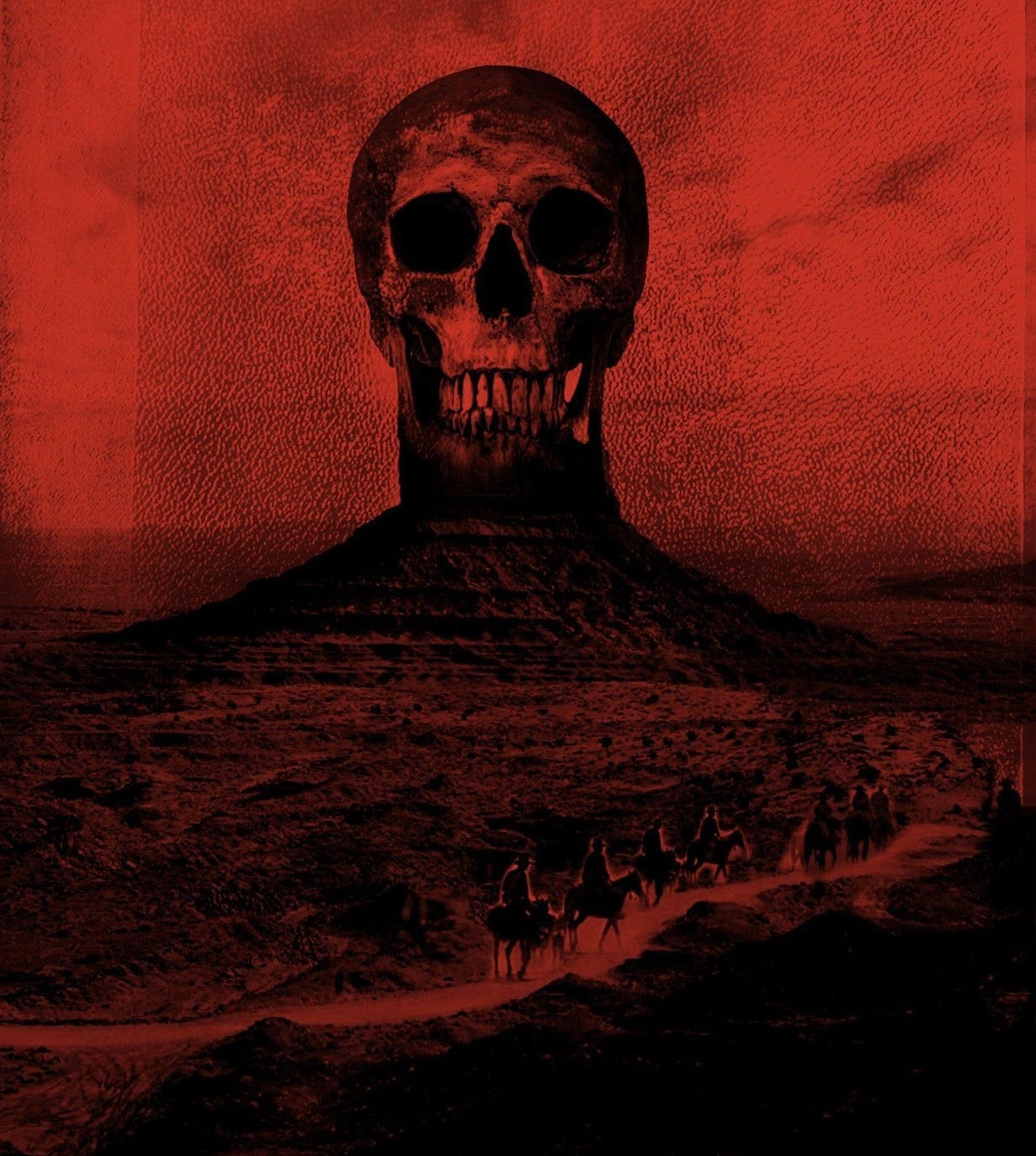Blood Meridian
“This is the nature of war, whose stake is at once the game and the authority and the justification. Seen so, war is the truest form of divination. It is the testing of one’s will and the will of another within that larger will which because it binds them is therefore forced to select. War is the ultimate game because war is at last a forcing of the unity of existence. War is god.”

Blood Meridian is a critically acclaimed Western novel written by Cormac McCarthy, based on historical events from the 1850s along the Texas-Mexico border. The book follows the narrative of an unnamed Tennessean kid who encounters a gang of scalp hunters driven by a thirst for fortune and debauchery. As he witnesses the violent acts of each character, McCarthy explores themes of the decay of Christianity and the inherent evil in all of humanity.
The book opens with a scene in a small town where a judge interrupts a sermon to accuse the priest of pedophilia. As the judge incites the congregation, one of them shoots the priest, and the judge makes his exit, observing a hotel burning down.
This sort of violence in Blood Meridian is relentless, both mentally and emotionally. Babies are swung by their feet until their heads explode on the rocks. Native Americans and settlers clash as they ravage villages for their resources. Heads of travelers are impaled on spears in the desert. Women are abused throughout the night and left for dead by morning. One scalp hunter even cuts off the ears of his victims and strings them together into a necklace.
While the story follows the kid throughout the novel, the protagonist is really the judge. The judge is easily one of the best-written characters I’ve encountered in any novel. He is albino, massive in size, hairless, infinitely crafty, all while being a polyglot. He stands out as the most malevolent villain of the gang, showing incredible competence and swagger. He meticulously memorizes everything in his ledger book and then destroys things according to his will. He commits a continuous stream of crimes, believing that his actions are meaningless unless witnessed—a concept that influences the rest of the crew. As one of the leaders of the scalp hunters, he teaches that war is a deity and that it will reveal the fate of all. He has no desire other than to watch the world burn for its own sake. When asked why he destroys, he responds:
“That which exists without my knowledge exists without my consent.”
The central theme of Blood Meridian is the idea that there are individuals who destroy beauty simply for the sake of destroying it. Unlike stories that attribute violence to personal trauma or mental instability, McCarthy’s novel presents a world where violence and mayhem occur without any underlying psychological or emotional catalyst. The characters are not driven by personal grievances or past traumas; instead, they engage in relentless brutality purely for the power and satisfaction of exerting violence.
The novel offers no salvation throughout its narrative. I initially expected a story with a redeeming arc similar to Red Dead Redemption 2, but instead, I was confronted with something far more heinous. The novel immerses the reader in the lawlessness and carnage of the period, depicting a brutal and unrelenting exploration of war, violence, and humanity’s darkest capabilities.

Blood Meridian is rich with Biblical references, particularly through McCarthy’s use of declarative sentences, a stylistic choice known as paratactic syntax. This technique mirrors the tone and structure of the Book of Judges in the Old Testament. On top of that, McCarthy deliberately omits certain punctuation, such as quotation marks to preserve a purity in the text. While these approaches contribute to the novel’s flair, they also make the novel exceedingly tedious and pretentious.
These stylistic choices make reading his lengthy, run-on sentences and highly descriptive passages one of the most challenging novels I’ve ever read. While the book begins with a compelling storyline, the continuous depiction of the hunters’ violence and their relentless ravaging of villages quickly becomes monotonous. This repetition continues until the novel’s final third, when it regains its momentum and impact.
The Biblical references tied to each violent act in Blood Meridian lead me to reflect on the nature of violence and its repetition. In the past, reading the Bible, I could not comprehend how violent the Benjamites were so cruel in war. Now, I am confronted with the unsettling reality that we are all capable of such evil. Blood Meridian reveals that we can destroy beauty without discernible reason.
In those days Israel had no king; everyone did as they saw fit. (Judges 21:25)
Overall Rating: 8/10
